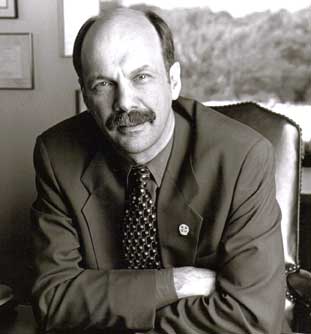Friday, September 04, 2009
Does religion divide or unite?
As I noted here last week, I've joined "A Million Minutes for Peace," a grassroots effort to get 1,000,000 people to stop at 12 noon on the United Nations International Day of Peace, September 21, to pray for one minute for peace. You can join at www.odysseynetworks.org . I am also one of the bloggers for this effort. My second blog response on the "Million Minutes for Peace" website that Odyssey has created is now online. We were asked to respond to this: "Many people maintain that, throughout history, religion has caused conflict by dividing rather than uniting people. How would you respond to this opinion? Here is my response:
+++++
Does religion divide or unite?
Early in my pastoral ministry career I was invited to a party hosted by friends who were not members of our congregation. At the party, I had a delightful conversation with a medical doctor, who, when he found out I was a Lutheran pastor, wanted to talk faith with me, especially the commonalities between his Jewish faith and my Christian faith. It soon became clear to me that I had more in common with this Jewish doctor, who actively practiced his faith, than I did with many “members” of my Christian congregation for whom faith was more of a hobby than a way of life!
That has been my continued experience in ecumenical and interfaith relationships – active people of faith of almost any faith have much more in common with active people of faith of almost any other faith than they do with inactive people of their own faith group. My experience is that the commonalities among world religions far outweigh the differences: almost all religions value justice, kindness, family, concern for the poor and the environment – I could list many more.
Certainly, religion has been used as an excuse, a crutch, for terrible behavior over the centuries. My own faith group, Lutheran, for example, has had to reject Martin Luther’s late-in-life writings about Jewish people. Most religions can point to individuals who have acted in the name of their religion who have perverted their faith. (Think of those who kill in the name of their religion – I’m bold enough to say, and it is not really very bold to say it, that they are NOT true followers of their faith).
True religious faith, at least the many different faiths I have come in contact with over the years, true religious faith is and should be something that unites people, rather than dividing them. When this does not happen, as it all too often does not, that is not the fault of the religion, but of what we Christians would call our “sinful humanity.”
+++++
Please go to www.odysseynetworks.org and join their effort "A Million Minutes for Peace," to get 1,000,000 people praying for peace for one minute at 12:00 noon on September 21st, the United Nations International Day of Peace. Thank you.
+++++
Does religion divide or unite?
Early in my pastoral ministry career I was invited to a party hosted by friends who were not members of our congregation. At the party, I had a delightful conversation with a medical doctor, who, when he found out I was a Lutheran pastor, wanted to talk faith with me, especially the commonalities between his Jewish faith and my Christian faith. It soon became clear to me that I had more in common with this Jewish doctor, who actively practiced his faith, than I did with many “members” of my Christian congregation for whom faith was more of a hobby than a way of life!
That has been my continued experience in ecumenical and interfaith relationships – active people of faith of almost any faith have much more in common with active people of faith of almost any other faith than they do with inactive people of their own faith group. My experience is that the commonalities among world religions far outweigh the differences: almost all religions value justice, kindness, family, concern for the poor and the environment – I could list many more.
Certainly, religion has been used as an excuse, a crutch, for terrible behavior over the centuries. My own faith group, Lutheran, for example, has had to reject Martin Luther’s late-in-life writings about Jewish people. Most religions can point to individuals who have acted in the name of their religion who have perverted their faith. (Think of those who kill in the name of their religion – I’m bold enough to say, and it is not really very bold to say it, that they are NOT true followers of their faith).
True religious faith, at least the many different faiths I have come in contact with over the years, true religious faith is and should be something that unites people, rather than dividing them. When this does not happen, as it all too often does not, that is not the fault of the religion, but of what we Christians would call our “sinful humanity.”
+++++
Please go to www.odysseynetworks.org and join their effort "A Million Minutes for Peace," to get 1,000,000 people praying for peace for one minute at 12:00 noon on September 21st, the United Nations International Day of Peace. Thank you.
